Hawraman Music Group Bridges Cultures in Brussels with Authentic Kurdish Melodies
The Hawraman Music Group's concert in Brussels captivated a European audience, using the power of authentic Kurdish music to foster cultural understanding.
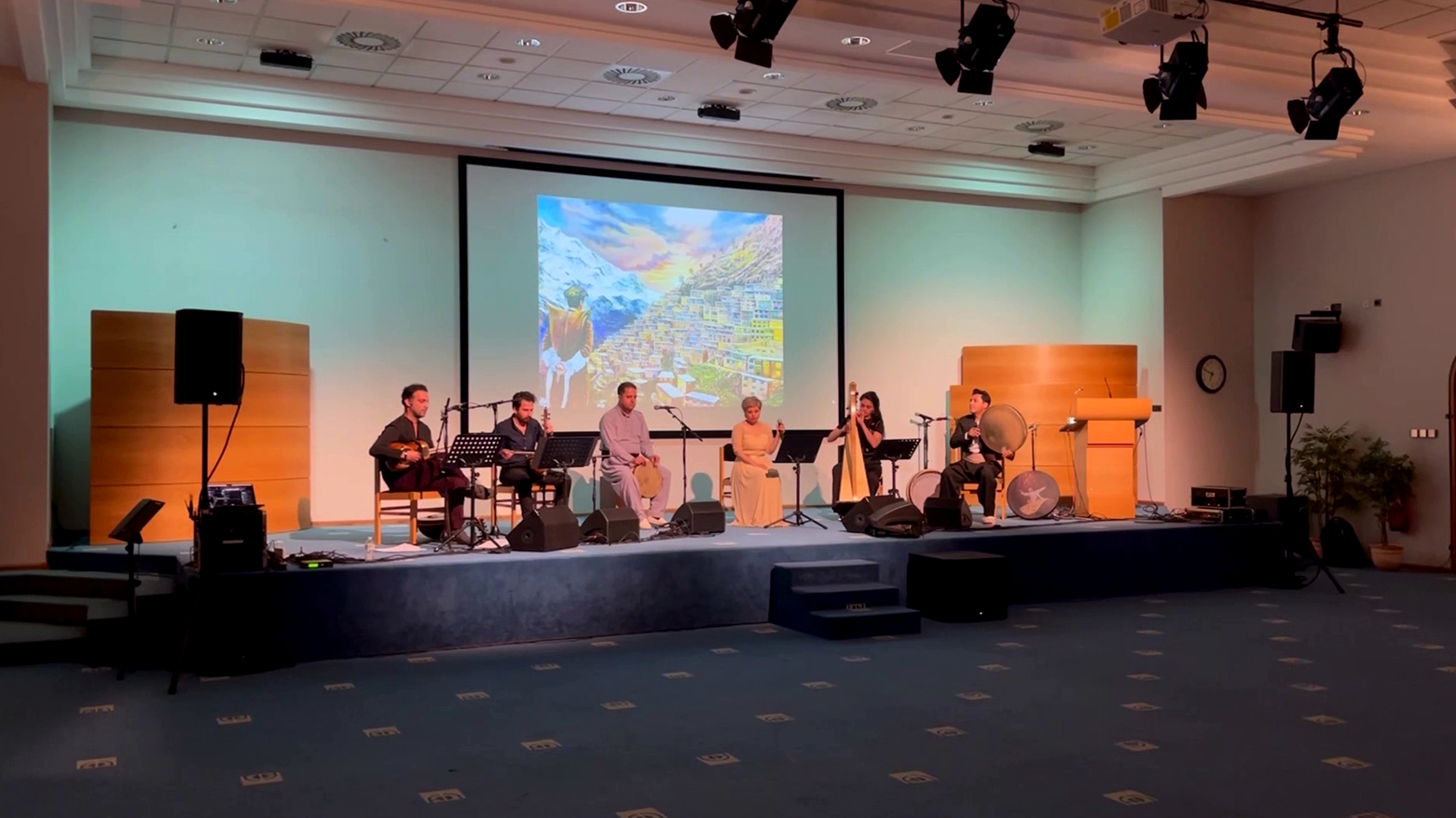
Erbil (Kurdistan24) - On a softly lit stage in Brussels, a captivating scene unfolds. Against a large screen displaying a vibrant, stylized painting of a terraced mountain village under snow-capped peaks, seven musicians are seated, each a conduit for the ancient sounds of their homeland. A man in traditional Kurdish clothes, his eyes closed in concentration, sings into a microphone, his hand gesturing with the emotion of the melody. To his side, a woman in a cream-colored dress, her expression equally intent, lends her voice to the harmony. The unique timbres of traditional Kurdish instruments—a kamancheh resting on one musician's knee, a tanbur held by another, and the steady, resonant beat of a large daf—intertwine with the ethereal notes of a harp, its elegant wooden frame cradled by a female musician. This is the Hawraman Music Group, and their performance is more than a concert; it is a cultural embassy, an invitation extended through music to the heart of Europe.
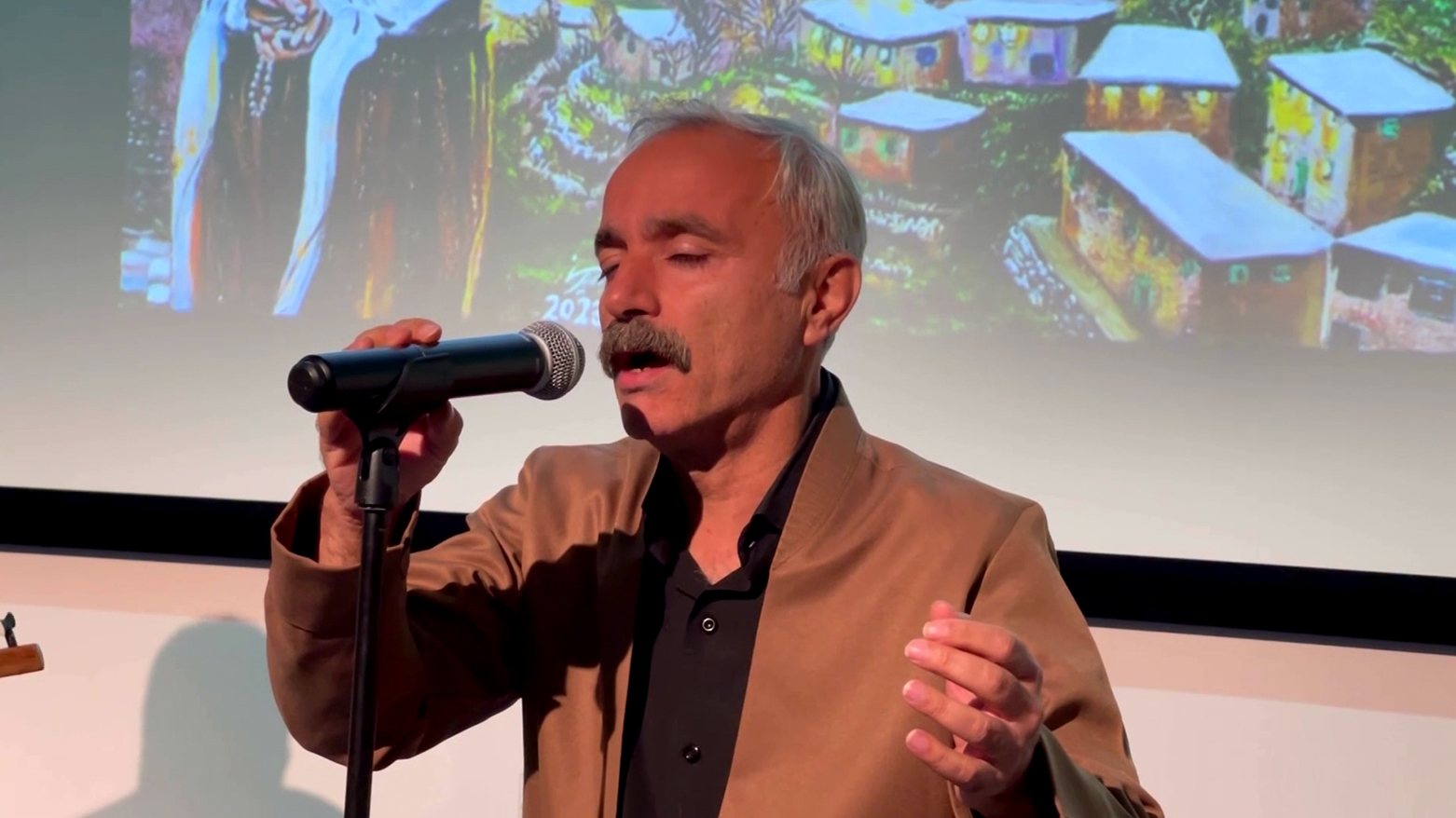
For Arad Imam Quli, the supervisor of the Hawraman Music Group, the purpose of this evening and countless others like it is crystal clear. Speaking to Barzan Hassan, Kurdistan24 correspondent in Brussels, he articulated a mission that transcends mere entertainment.
"The only thing I do is introduce Kurdish culture to Europeans," Imam Quli stated with conviction. He sees his work not just as a passion, but as a vital form of cultural diplomacy. "Art is the best way to introduce the culture of a nation. Art can serve as a bridge to connect the different cultures of the Kurds and introduce the Kurds to the world."
This philosophy is the driving force behind the group, turning every performance into an opportunity to build connections and foster a deeper, more nuanced understanding of the Kurdish people and their rich heritage. The music becomes a universal language, conveying stories, emotions, and traditions that resonate far beyond the borders of Kurdistan.
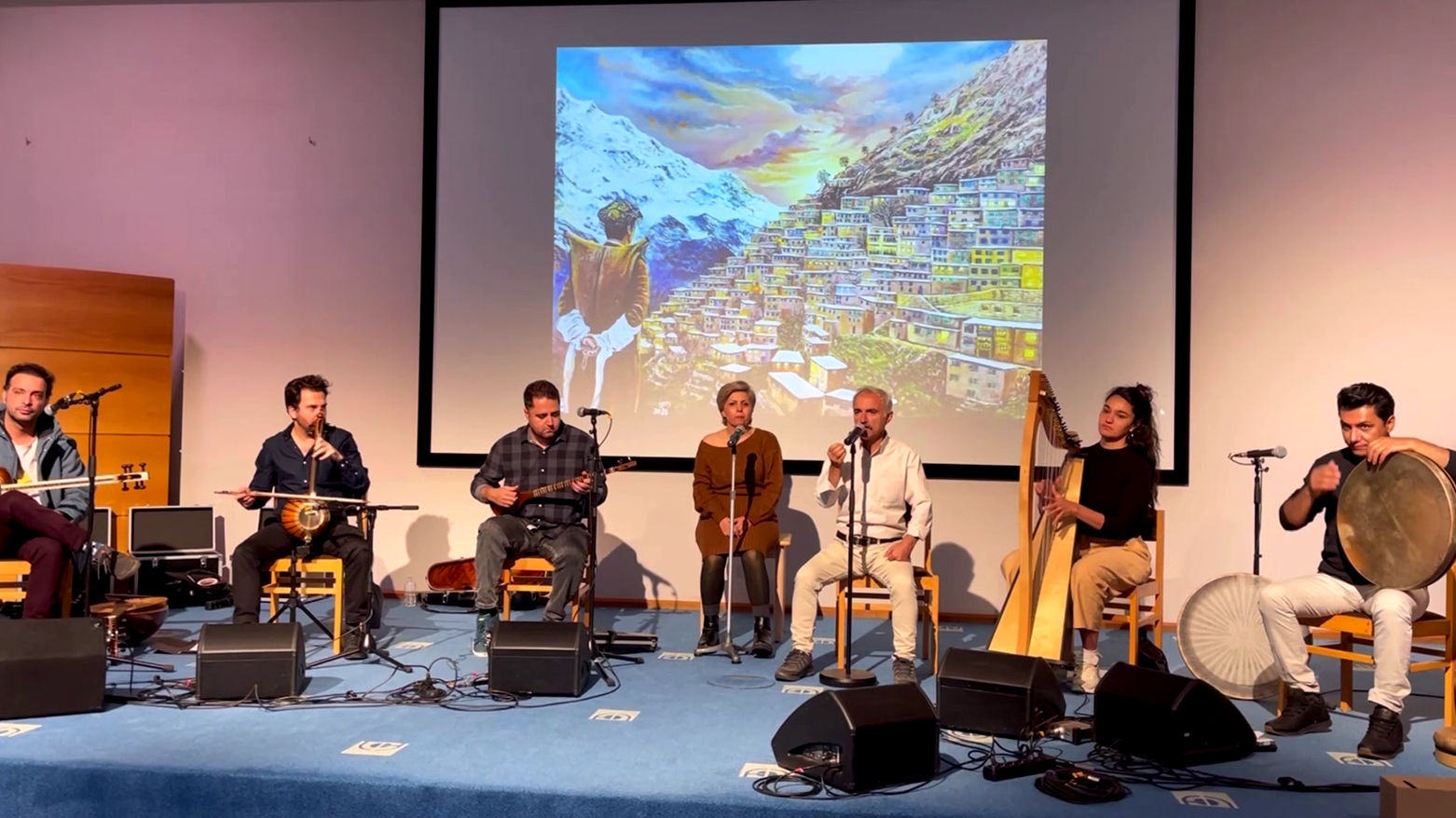
The concert in Brussels was a resounding affirmation of this vision. The performance was warmly welcomed by a diverse audience of Europeans, who listened with rapt attention, drawn into the intricate melodies and soulful vocals.
The event provided a unique and immersive opportunity for attendees to become more familiar with the distinctive sounds of authentic Kurdish music, an experience that goes far beyond a superficial encounter. For many, it was a first-time exposure to the depth and beauty of a musical tradition honed over centuries.
The positive reception underscored the power of art to pique curiosity and open minds, proving that a well-played melody can be one of the most effective ambassadors a nation can have.
Among those in attendance was Estelle Mauro, a Belgian student whose presence highlighted the success of the group's outreach. Her interest in Kurdish culture was not newfound; she mentioned that she had previously traveled with her Kurdish friends.
However, the concert offered her a new and enriching dimension to her understanding. She expressed her happiness at the chance to learn more about Kurdish music, food, and culture. Her experience is a testament to the idea that cultural exchange is often a personal journey, sparked by friendship and deepened through immersive events like this concert.
It demonstrates a genuine and growing curiosity among Europeans to engage with the cultures that are becoming an integral part of their own diverse societies.
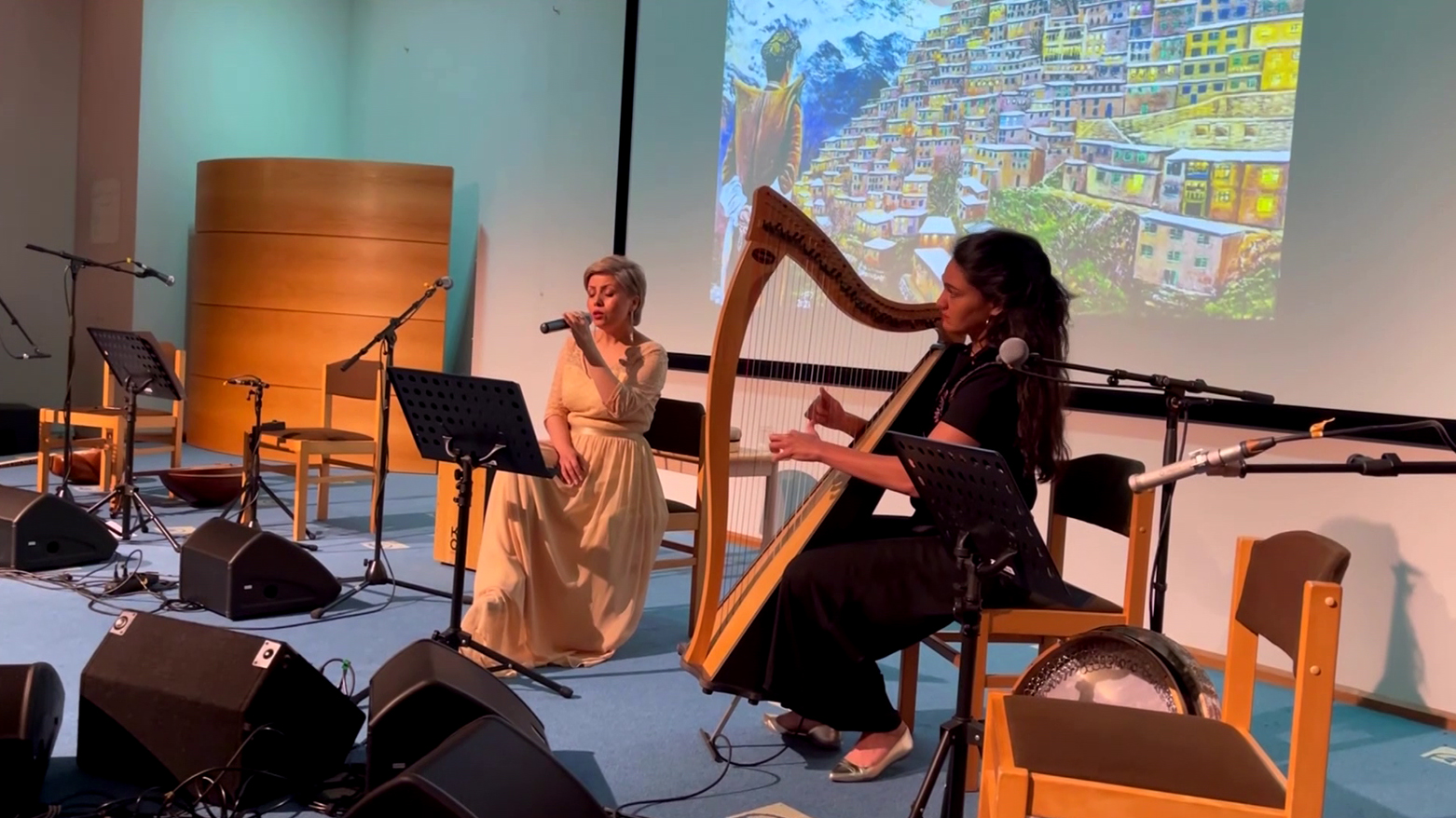
The intentionality behind the concert's format was emphasized by Hiwa Ghulami, the event's organizer. He drew a distinction between the work of the Hawraman Music Group and other types of Kurdish musical gatherings that have been common in the past.
"In the past, Kurdish concerts and parties were more for dancing and were far from authentic Kurdish music," Ghulami stated.
While those events serve a social purpose, his goal, and that of the group, is different. "Their goal is for people to sit down and enjoy authentic Kurdish music."
This approach reframes the musical experience, encouraging a more contemplative and appreciative form of listening. It positions the music not merely as a soundtrack for celebration, but as a sophisticated art form worthy of focused attention, akin to a classical recital, allowing the complexity and emotional depth of the compositions to take center stage.
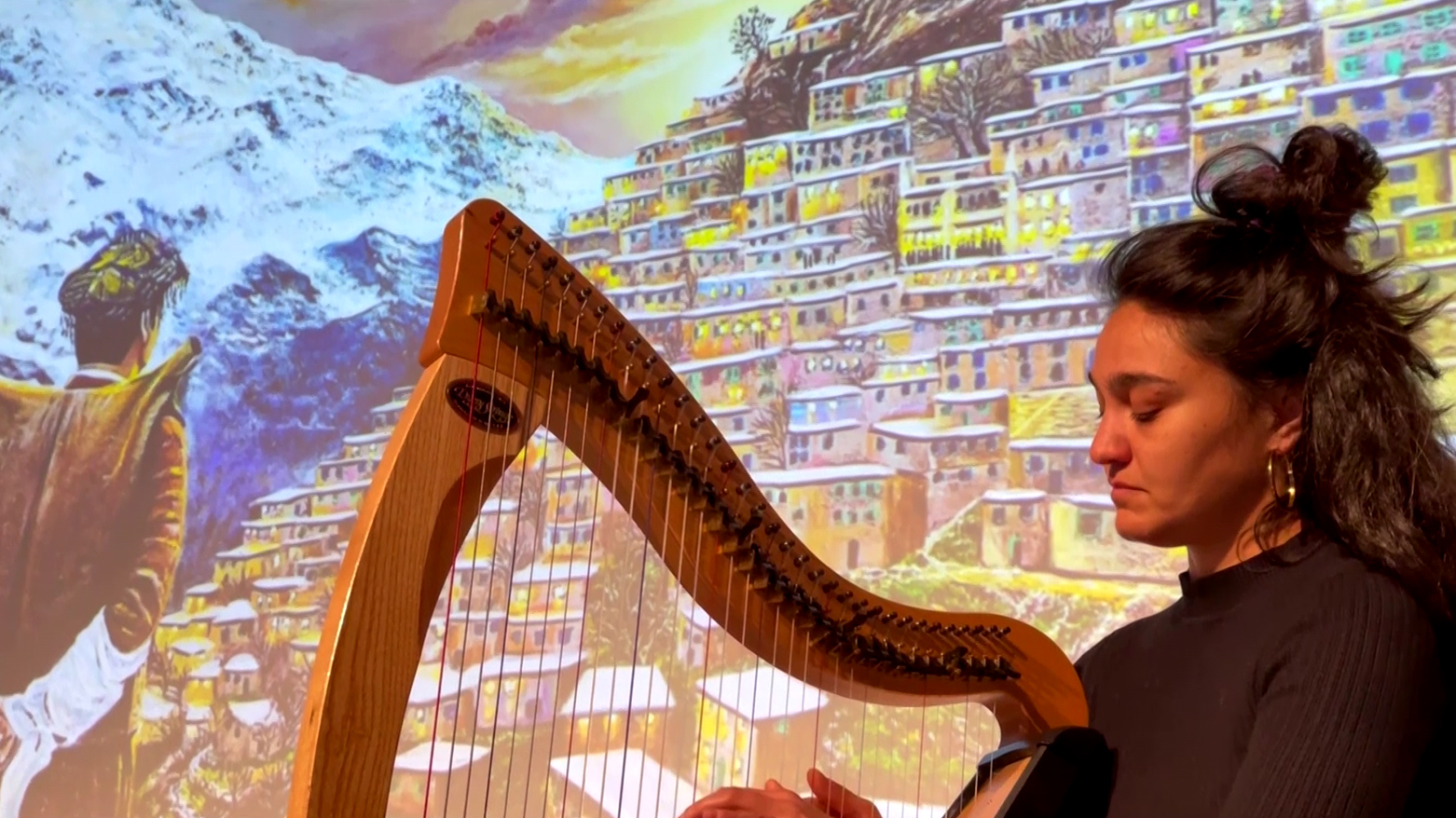
The Hawraman Music Group's success is not a recent phenomenon. Their performance in Brussels is the latest chapter in a long and dedicated journey. The group has been working together for more than five years, a period during which they have honed their collective artistry and solidified their mission.
Their commitment is evident in their prolific performance schedule; during this time, they have performed more than 100 concerts in different European cities. This extensive touring has allowed them to introduce countless individuals across the continent to the sounds of Kurdistan, building a significant following and establishing a reputation for quality and authenticity.
Their sustained effort demonstrates a remarkable dedication to their craft and their role as cultural ambassadors. As Kurdish artists in Belgium continue to hold concerts one after another, they are finding, as they say, that their performances are warmly welcomed by Europeans. This enthusiastic reception has opened a significant way for Europeans to become more familiar with the richness and diversity of Kurdish art, fostering a climate of mutual respect and cultural curiosity that benefits all.
Barzan Hassan, Kurdistan24 correspondent in Brussels, contributed to this report.